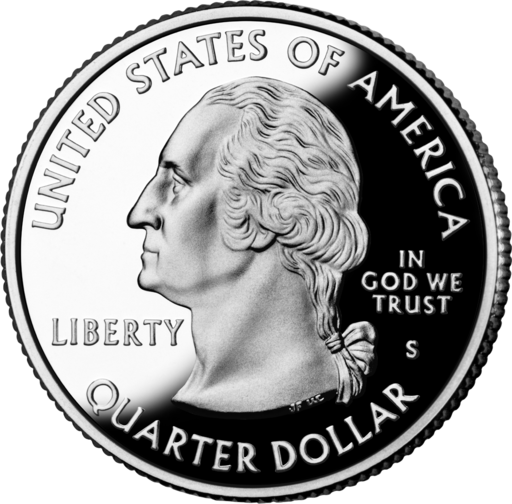Since 1956 “In God We Trust” has been the official motto of the United States. Its use on U.S. currency dates to the Civil War. Though opponents argue that the phrase amounts to a governmental endorsement of religion and thus violates the establishment clause of the First Amendment, federal courts have consistently upheld the constitutionality of the national motto.
Defenders say motto is no longer religious
Some defenders of the motto justify it on the ground that it is a form of what Justice Sandra Day O’Connor has called “ceremonial deism,” that through constant repetition has largely lost is religious content. No longer religious in nature, the phrase has become, rather, a historical artifact, a public recognition of the role of religion in national life, and an expression of patriotism.
O’Connor explained in her concurring opinion in Elk Grove Unified School District v. Newdow (2004), “eradicating such references would sever ties to history that sustains this Nation.” Given this, she continued, “the reasonable observer . . . fully aware of our national history and the origins of such practices, would not perceive these acknowledgements as signifying a government endorsement of any specific religion.” O’Connor concluded, “I believe that government can, in a discrete category of cases, acknowledge or refer to the divine without offending the Constitution.” According to her, “[H]istory, character, and context prevent” references to God, as in the national motto, “from being constitutional violations at all.”
Lower courts have upheld use of motto
In Lambeth v. Board of Commissioners of Davidson County (M.D.N.C. 2004), a federal district court in North Carolina determined that the inscription “In God We Trust” on the facade of a government building does not violate the separation of church and state. The following year, the Fourth Circuit Court of Appeals affirmed the lower court decision. In 2006 a U.S. judge in the Eastern District of California wrote in Newdow v. Congress of the United States (C.D. Cal. 2006), “The national motto is excluded from First Amendment significance because the motto ‘has no theological or ritualistic impact’ and is of a purely secular, ‘patriotic’ and ‘ceremonial character.’ ” The words In God We Trust, he said, constitute in effect “a secular national slogan.”
In American Civil Liberties Union of Ohio v. Capitol Square Review and Advisory Board (6th Cir. 2001), dealing with an issue similar to the national motto issue, the Sixth Circuit Court of Appeals upheld the constitutionality of Ohio’s state motto, “With God, All Things Are Possible.” Unlike the national motto, however, this one comes directly from the Bible (Matthew 19:26).The court ruled that the establishment clause does not forbid “generalized religious language in official discourse,” and it was absurd to consider that “the First Amendment was designed to impose a secular political culture.”
Challenges continue to the inclusion of “In God We Trust” on our coinage. For example, the Freedom from Religion Foundation filed a federal lawsuit against the federal statutes providing for the inclusion of the motto on coinage. The 2nd U.S. Circuit Court of Appeals rejected the challenge in Newdow v. Peterson (2014), finding that the laws had a secular purpose and did not advance or inhibit religion. The group appealed to the U.S. Supreme Court, which denied review in 2015.
This article was originally published in 2009 and updated in 2017. D. Jason Berggren is an associate professor of political science at Georgia Southwestern State University. His primary teaching and research interests include the U.S. presidency and religion and American politics.

